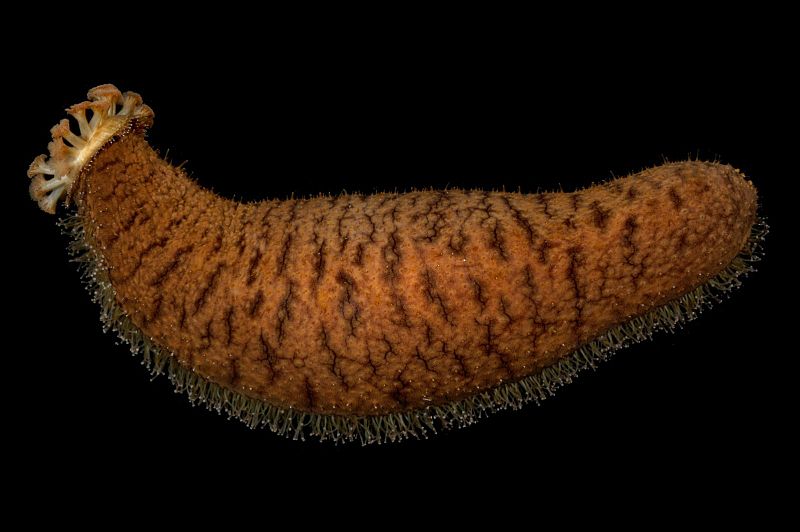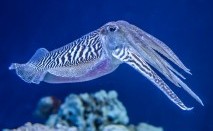
Category: Invertebrates

These tubular echinoderms can be found in oceans all over the world – in some deep sea environments they can be found in very large numbers roving along the ocean floor in search of food. The diet of most sea cucumber consists of decaying organic matter and plankton. Though they don’t resemble other echinoderms at first glance, they are technically radially symmetrical along their horizontal axis and crawl about on their side. One of their most remarkable adaptations is their “catch” collagen that forms their body wall – it can be loosed or tightened at will, allowing them to essentially liquefy their bodies to squeeze through tight spaces.
https://en.wikipedia.org/wiki/Sea_cucumber

Cephalopods: Masterminds of the Ocean.
Octopi, cuttlefish, and squids - all cephalopods - have been observed engaging in amazing feats of intelligence (perhaps unsurprising, as cuttlefish and octopuses have the highest brain-to-body mass of all invertebrates). Their suction-cup covered arms are dexterous, and octopuses have been observed putting them to use throwing rocks, opening screw-top jars, even picking up and gathering coconut shells to build fortresses for themselves. Squids, for their part, have been observed hunting cooperatively and are able to communicate with one another via color changes, patterns, and flashing to one another - sometimes using different sides of their bodies to broadcast different signals to multiple squids! Just how smart are they? As they are typically elusive and so very different from humans, we aren’t sure yet - but we do know the question is not “Are they intelligent?” but “How intelligent are they?”
Learn more >>
 Discover Animals is a web-based educational resource offered by the NAIA
Discover Animals is a web-based educational resource offered by the NAIA